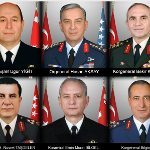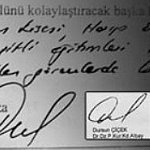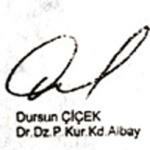When the daily Taraf newspaper published a document allegedly emerging from the army and carrying the signature of Colonel Dursun Çiçek on 12 June, the "action plan against reactionary forces", public opinion ranged from those outraged at the attempts to defame the ruling Justice and Development Party (AKP) and the religious Gülen movement to those believing it to be a fake paper.
Army dismissive of accusations
The military prosecution decided there was no need for prosecution and handed the case over to the civilian prosecution.
Chief of General Staff İlker Başbuğ made the army's position very clear in a press statement when he described the document as a "shred of paper" and warned people to "keep their hands off the Turkish Armed Forces".
The civilian prosecution, however, seemed to take the allegations more seriously, and Çiçek was arrested by a duty heavy penal court in Istanbul in the night from Tuesday to Wednesday (1 July).
Questioned and arrested
Accused of membership in an illegal organisation, he and eight other active colonels in other units were questioned by prosecutors, among them Zekeriya Öz, prosecutor in the Ergenekon trial.
After the questioning, Çiçek was taken to Hasdal military prison in Istanbul.
Assoc. Prof. Dr. Yılmaz Yazıcıoğlu, a penal law expert, told NTV that the prosecution would only arrest the colonel if there was serious evidence, as well as the suspicion that the person may evade a trial or obscure evidence.
Released one day later
However, in a surprise development on Wednesday evening, the same heavy penal court, this time with three judges rather than one duty judge, decided to release the colonel.
The decision was made after Çiçek's lawyers objected to the arrest. (EÖ/AG)












